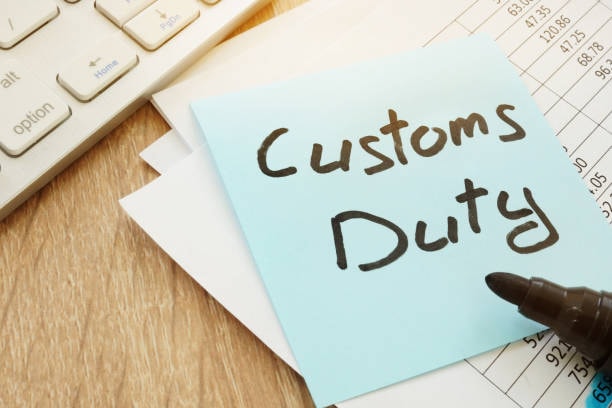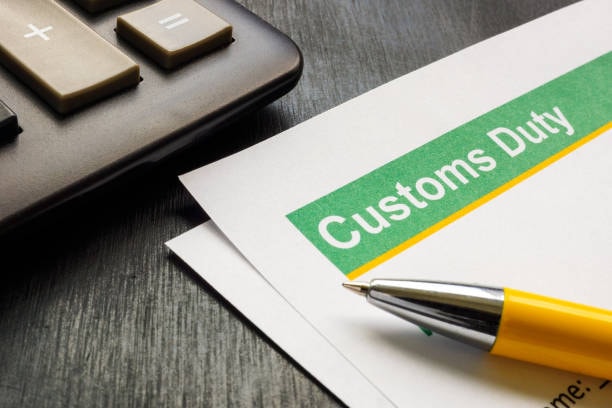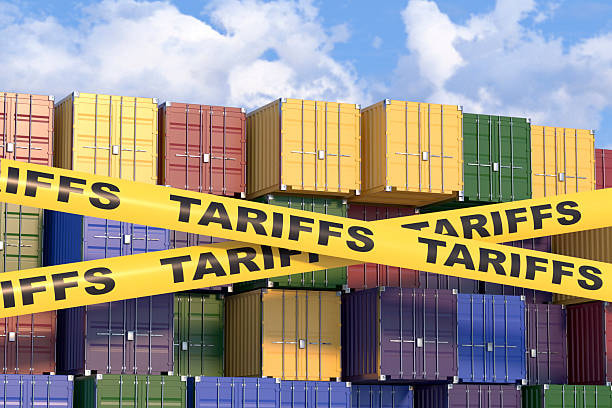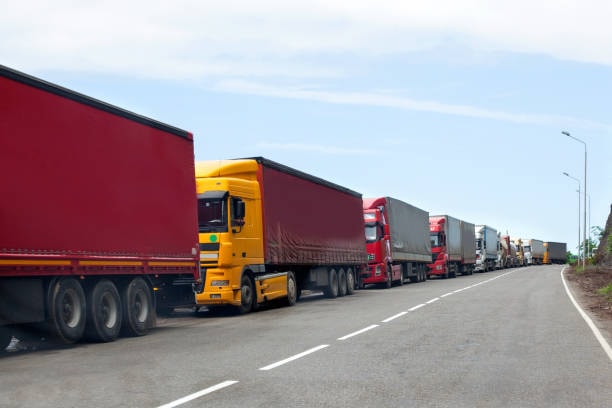
International trade supports the world’s economy by linking companies and people all over the globe, but understanding import duty is essential . Still, both importers and exporters often find it challenging to deal with customs duties. People engaged in dealing with goods through international trade need to understand these charges, because they change the price, profits and compliance with trade regulations.
At Shenzhen Guanwutong International Freight Forwarding Co.,Ltd., GWT Worldwide focuses on supplying complete logistics services such as customs clearance and solutions for warehousing, with emphasis on customs and border protection . We assist businesses in shipping and logistics globally, supply chain control and the e-commerce field across borders as professional freight forwarders. Using air, sea, rail, express and Amazon deliveries, we smoothly and correctly transport your goods from where they are produced to where they are needed.
Understanding the Definition of Customs Duties
When goods pass from one country to another, governments may charge custom duties which are taxes for the goods. They help support government budgets and also defend domestic firms from competition with foreign goods. Bringing products into another country, customs will depend on the type of product, where it was made and what it is worth.
The base idea of customs duties is very old, as it initially helped the government earn money. Currently, these taxes continue to oversee international business and help national treasuries make a large amount of income while protecting local industries . With this understanding, companies can get ready for the effects of trading internationally and decide on suitable pricing.
Other taxes and fees work differently from customs duties because they are designed for international trade. While other taxes like sales taxes and value added tax impact all types of products, customs duties are unique to cross-border movement, so they affect companies involved in import and export.
Historical Background and Evolution of Customs Systems

Long ago, people paid customs taxes and the tax imposed to assist in the regulation of trade and gather resources for their economies. Olden shipping and trading posts first made up reliable customs systems which are still used today.
At the time of the medieval period, customs duties were set differently for goods and sellers. Since the industrial revolution, customs systems were changed, since nations started setting duty rates and tariffs to collect money and to support their own new businesses against outside competition.
The late 19th and early 20th centuries saw improved international cooperation in customs which resulted in the WCO being formed and systems to standardize good classifications. Those changes made customs processes more regular and easy to understand, making it simpler for international trade despite needed government oversight.
New technology leads customs systems to improve, adding electronic checks, risk estimations and automatic approvals to their procedures. They speed up the process, increase accuracy and keep the proper security and compliance rules in line with global trade regulations.
Types of Customs Duties and Classifications
Customs duties are divided into various groups and each class is used for different needs in particular cases. Most of the time, countries charge ad valorem duties which are based on how much the goods are valued. Thanks to this approach, taxes on imported merchandise increase as its value goes up.
Some duties use fixed rates based on a certain amount such as per kilogram, per piece or per liter. Although businesses paying this type of duty know the costs, it could be unfair to the lower-value products.
Compound duties apply both a percentage of the value and a set amount per unit which is different from ad valorem and specific duties. This arrangement enables government to raise revenue from significant and large-scale imports and also to shield its own industries.
Anti-dumping duties act as a defense against inexpensive imports sold by foreign businesses at unfairly low prices. They try to ensure that home-based companies face the same conditions and do not get too much advantage in the market against duty levied by foreign companies .
The goods exported by companies receiving subsidies do not receive unfair treatment in other countries, because countervailing duties neutralize the effects of subsidies. With these plans, domestic businesses can compete on fair terms since the government prevents unfair aid to international companies.
How Customs Duties Are Calculated

Determining the amount of customs duties includes a series of important elements for importers. Often, duty calculations on imports rely on the customs value, which stands for the value of the goods plus the costs of transport, insurance and similar charges.
HS codes are used to classify goods which helps in figuring out the duty to be charged. All countries have adopted a code system for products and these codes always match the officially set duty rates. To classify products properly within the harmonized tariff system , you must know what features they have and what purpose they serve.
Finding a product’s country of origin matters a lot, since a lot of countries charge different duties for items from different sources. Items from certain countries may pay no duties if a country is involved in certain trade agreements, especially under delivered duty paid term .
Also, if trade remedy measures such as anti-dumping or countervailing duties are applied, they can significantly increase what is charged in standard duties. The rate at which currencies are exchanged is considered when valuing goods, especially if they use a currency apart from the country’s own.
Having professional help from a customs broker and logistics provider like GWT Worldwide allows businesses to avoid inaccuracies in duty rates and stay out of trouble before, during and after imports and exports.
Factors Affecting Customs Duty Rates
Many factors help shape the customs duty rates for imported goods, so businesses need to take care when handling them. Whether a product belongs to one category or another is the major factor, because different groups of goods may have different duty rates as set by the government.
Duty rates can change a lot based on the place where a product is made, as countries can set various treatment rules for goods from different countries. By signing free trade agreements, nations may lower or eliminate all import duties on one another, but if there is a dispute, duties on those goods can increase.
Declaring the true value of goods is necessary to calculate the right duty amount. When the declared value is not in line with the market price, customs authorities could request changes and charge more taxes.
Existing trade policies are used to set up duty rates which might serve to defend local businesses, raise government income or be a reaction to global trade disagreements. These policy changes might come into effect quite quickly, meaning businesses have to be updated about recent rules.
Sometimes, changes in the seasons and short-term situations lead countries to temporarily change their duty rates. By knowing these changes, businesses can better plan the way they import goods.
The Role of Customs Duties in International Trade

There are many ways customs duties help in the world trading system apart from earning revenue alone. Thanks to these fees, governments are able to watch over products moving across borders and stick to important safety, security and quality standards in favor of domestic industries.
Customs duties continue to be significant for the collection of revenue, especially for developing nations since they contribute a significant share of their government’s earnings. Income from taxes funds services for the public and helps governments develop infrastructure, as well as giving them the resources to stimulate the economy.
Another reason for applying customs duties is to protect new or vital industries from the heavy effects of imports from other countries. It provides security for people’s employment and motivates local businesses to invest in important industries to protect local industries .
Through customs duties, countries can support their trade policy ambitions by helping those they want to deal with and stopping those who are facing trade penalties. They help governments achieve their foreign policy aims by using economic tools.
Customs duties are set in place to guarantee that imported goods match the standards for safety, quality and protecting the environment. Because of this oversight, communities and countries are secure from bad products and people trust international trade.
Import Procedures and Customs Clearance Process
Importers must successfully go through various customs clearance steps to get their goods. Comprehending these measures allows companies to arrange required papers and prevent problems that can harm their supply chains and lead to more costs.
Documentation is the first important task in customs clearance, so importers have to assemble the commercial invoice, packing list, bill of lading and every necessary certificate or permit. Proper and complete documentation makes it easy for customs to work through the process.
You are required to provide complete details on the goods you import which living description, worth, country of origin and how they will be used. Although most nations use electronic systems to keep things simple, accuracy is still important since penalties and delays may result if the data is not accurate.
After the customs officials review and accept the import declaration, you have to calculate and pay your duties. The kind of payment methods accepted depends on each country and many places now use electronic payment methods for better efficiency.
Particular attention is given to some shipments through a physical inspection, especially if the automated screening process labels the goods as high-risk. Working together and sharing more information when needed speeds up the process of clearing your goods.
Releasing the goods is possible after they fulfill all the requirements and duties have been covered. If clearance steps are prepared ahead, the delivery of imported items is prompt and not held up by avoidable delays.
Documentation Requirements for Customs Duties
The process of customs clearance and duty assessment relies a lot on proper documentation. Commercial invoices give the most important details about the transaction, listing the seller and buyer, descriptions of the goods, amounts purchased and the agreed prices.
Bills of lading and airway bills are used to track goods during transportation and packing lists show what is in each package or container. Using these documents, customs agencies make sure the imported goods are declared properly and charge them with the right duties.
Some agreements require certificates from origin in order to allow duty savings or fulfill origin marking rules. Any documents made for this purpose have to be issued by lawful bodies following set formats and content rules.
Licenses or permits might be required for particular types of products that are limited or managed by special rules. This makes sure there are no problems when the items are shipped and all rules are observed.
These documents, as well as the freight invoice, assist in finding out the total value of imported goods which helps ensure no errors in duty calculations. Service providers in logistics help prepare and organize all the documents needed for smooth customs processing and ensure import compliance.
Common Mistakes and How to Avoid Them

Misclassification of goods is a usual and costly error found in customs work. An incorrect HS code might bring about incorrect duty costs, fines and a sluggish clearance process. Making sure you are up to date and hire professionals will prevent these problems.
If an item is undervalued, there is a risk of customs penalty and items may need to be revalued. When all information entered matches the transaction and includes necessary details, the required rules are followed and there are no such complications.
Not having proper or finished documentation can cause major delays and might mean you have to pay additional charges or fines. When a company has consistent procedures and logistic partners, all shipment needs are met in the right manner.
Failing to answer customs questions or provide more information on time can cost you money or even make customs officials seize your merchandise. Clear communication and fast replies make sure these delays are avoided.
If you do not track new regulations and duty rates, you may end up facing extra expenses and issues following the rules. Checking trade magazines, official statements from government bodies and news from professionals helps companies deal with regulatory changes.
Technology and Digital Transformation in Customs
Lately, customs systems have started to make use of the latest technology to help achieve better efficiency in custom duty calculations , more accurate work and higher security in trade activities. It is possible to rapidly complete and review customs forms with EDI because it decreases the chances of errors when using manual procedures.
Risk assessment systems scan documents and trade information to single out shipments that may require checking before speedy clearance of others. With them, security gets better and the wait for compliant traders to finish processing their details is less.
Using blockchain, it is possible to create safe and clear international transaction history that could make the customs process quicker and help prevent fraud. Several states have started looking into using blockchain for paperwork used in trading.
Customs authorities use artificial intelligence and machine learning to find potential issues that could be related to non-compliance or security issues. They help authorities control the borders and support businesses in legal trading.
Online portals and mobile applications allow traders to view customs information, track their shipments and pay for goods whenever they need to. Such digital tools help traders and customs authorities with service by lowering administration costs and tasks.
Regional Differences and International Variations
Because countries and regions have different needs, levels of development and trading partners, the systems for customs duties are usually not alike. In order to trade easily and comply with regulations, developed countries usually apply less duty rates on their goods.
High dependence on customs duties by developing countries leads to higher average rates and complicated ways of taxing. Such factors should be considered carefully while making international trade decisions and pricing policies.
Member countries in these agreements usually have their duties reduced or removed on products acknowledged in the agreement. Knowing these agreements and what is required enables businesses to improve their supply chain management.
The way business is handled through customs changes from one place to another and forces companies to make adjustments. Local experts and knowledgeable distribution partners guide the process so it goes smoothly.
The purpose of harmonization through these organizations is to lower variations and establish regular customs procedures all around the world. Progress is taking place, but there are still big differences to keep in mind when companies do business globally.
Future Trends and Developments
Changes in customs duties and trading internationally will probably be brought about by recent trends and advances in technology. Because of digitalization, customs procedures should get even more simplified and secure.
Concerns about the environment are rising and some countries are adding carbon border adjustments and different environmental duties. Such changes could have a major effect on the way trade and business is done in industries that depend on carbon emissions.
If there is more conflict in trade, duties may become more complex and more remedies may be used. Businesses should keep an eye on political matters and be ready for possible changes in their trading partners and duties.
Emerging issues related to supply chains due to recent events might prompt the government to make policies on vital goods and industrial sectors. Because of these reasons, responsibilities within and trade policies for important sectors could see major changes.
Growth in e-commerce keeps showing that customs procedures are not able to keep up with the rise in parcel shipments and duties on internet products. Authorities in various countries are looking into new ways and technologies to solve these issues personal exemption.
Best Practices for Managing Customs Duties

Fulfilling requirements of customs duties needs a planned system and the skills of experienced professionals. Using clear guidelines for documenting, classifying and valuing goods promotes harmony and follows rules throughout all imports processes sales tax.
Frequent training for people handling international trade reduces the risk of making expensive errors. While training, workers should learn how to classify merchandise, value assets and comply with recent business rules and laws flat duty rate.
When you connect with qualified customs brokers and logistics service providers like GWT Worldwide, you can benefit from special expertise and resources needed for international trade activities delivered duty unpaid. Thanks to these partnerships, businesses can follow the rules and reduce both their costs and how much time they spend on various tasks protect domestic industries.
Adopting technology in trade management lets businesses handle routine tasks automatically, keep accurate records and comply with the necessary regulations. They allow businesses to be aware of new regulations and maintain the same level of operation.
An ongoing review of customs work detects problems and suggests ways to make work better. Such reviews must check if the model is still correct, the approach to valuation is correct and if everything is being done according to rules and regulations international trade commission.
Phần kết luận
To do well in international trade, it is necessary to understand customs duties and stay informed about any changes, properly complete paperwork and plan your strategies. As trade around the world progresses due to technology and changes in politics, companies should adjust and still maintain strong rules. Dealing with customs, regulating the supply chain and abiding by rules is made easier with a professional logistics partner like GWT Worldwide, so businesses can prioritize their main work and trade conveniently.


Thank you for reading!
Have questions, corrections, or better ideas? We’d love to hear from you!
We value every piece of feedback and promise to reply within 24 hours. Let's make this guide better together!
Note: Spam comments will not be published.